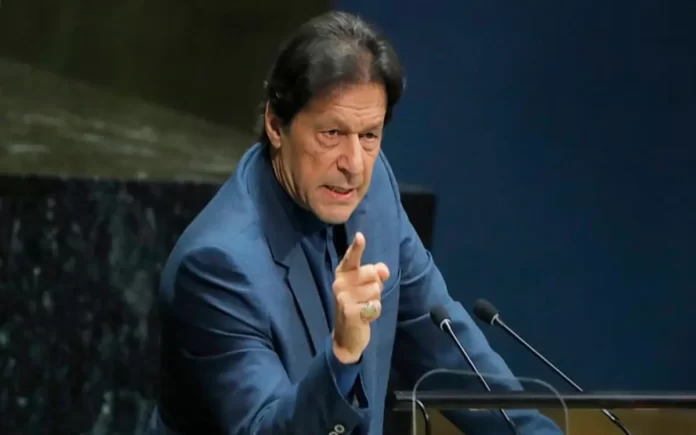Islamabad: Imran Khan’s political party has announced its intention to escalate its battle for reserved seats in the national and provincial legislatures by taking the matter to the Supreme Court. This decision comes after a setback in which the Sunni Ittehad Council’s plea, backed by Khan’s Pakistan Tehreek-e-Insaf (PTI) party, challenging the election commission’s allocation of these seats to other parties was rejected by the Peshawar High Court (PHC).
The PHC dismissal of the Sunni Ittehad Council’s petitions dealt a significant blow to the PTI, led by the incarcerated former Prime Minister Imran Khan.
The bench, concluding hearings spanning two days, promptly dismissed the petitions filed by the Sunni Ittehad Council, supported by PTI lawmakers, seeking their share of reserved seats for women and minorities following the February 8 elections.
Read More: Russian Presidential Elections: Kerala’s Role in the Democratic Process
PTI Chairman Gohar Ali Khan, speaking to reporters outside Adiala jail in Rawalpindi where Imran Khan is detained, affirmed the party’s resolve to pursue legal recourse. He stated that the PTI would move the Supreme Court to assert its claim over the reserved seats and called for a larger bench to preside over the case.
The Sunni Ittehad Council had petitioned the court to direct the Election Commission of Pakistan to allocate the reserved seats based on their parliamentary strength. Additionally, it contested Section 104 of the Elections Act, which mandates the submission of priority lists of candidates by political parties for reserved seats.
In a previous ruling on March 6, the court temporarily restrained the National Assembly speaker from administering oaths to eight lawmakers elected on reserved seats from Khyber Pakhtunkhwa province. Given the complexity of the legal issues involved, the PHC chief justice constituted a special larger bench comprising five senior judges.
Read More: Indian Finance Minister Advocates Transparency in Party Funding System
The Election Commission of Pakistan had earlier stated that the Sunni Ittehad Council was ineligible for quota due to “non-curable legal defects and violation of mandatory provisions regarding the submission of party lists for reserved seats.”
The distribution of the 70 reserved seats in the National Assembly and 156 in the provincial assemblies is typically proportional to the winning parties in general elections. However, the PTI-backed Sunni Ittehad Council was excluded from this allocation.
Despite more than 90 independent candidates backed by the PTI winning the most seats in the National Assembly, the post-election coalition formed by the Pakistan Muslim League-Nawaz and the Pakistan Peoples Party effectively sidelined PTI’s interests.



